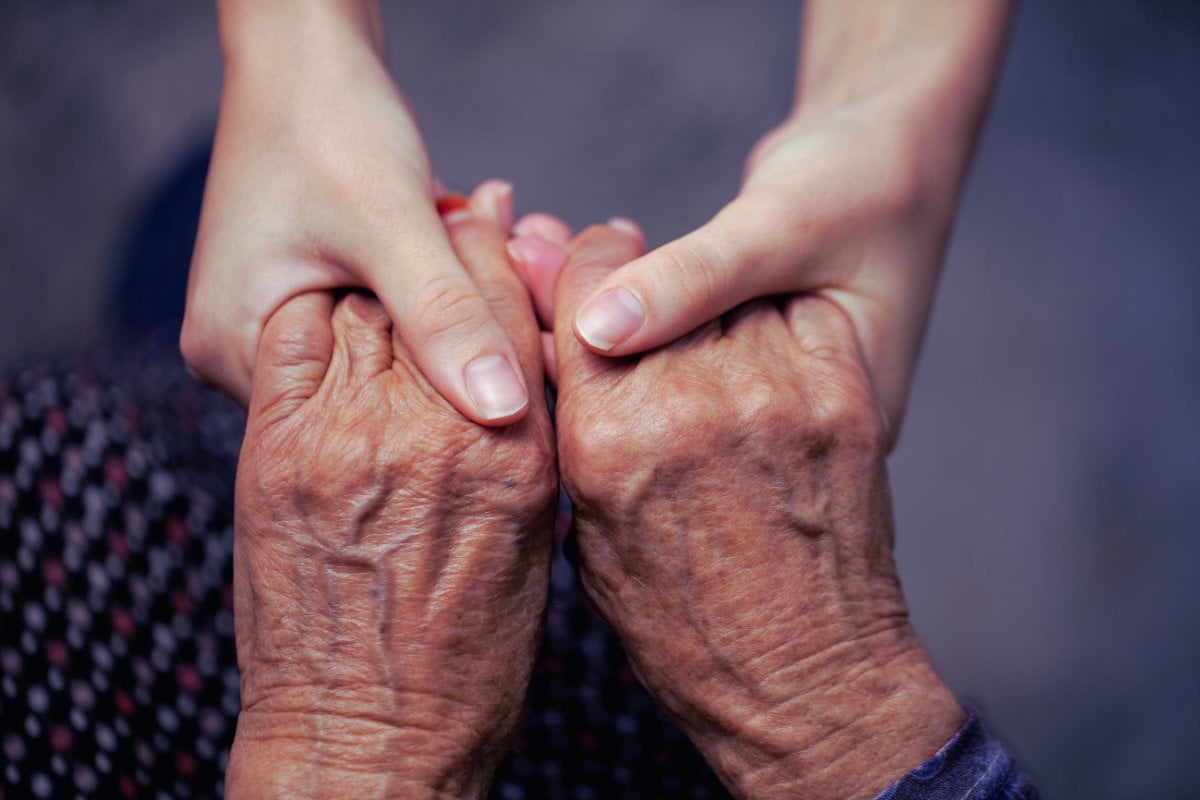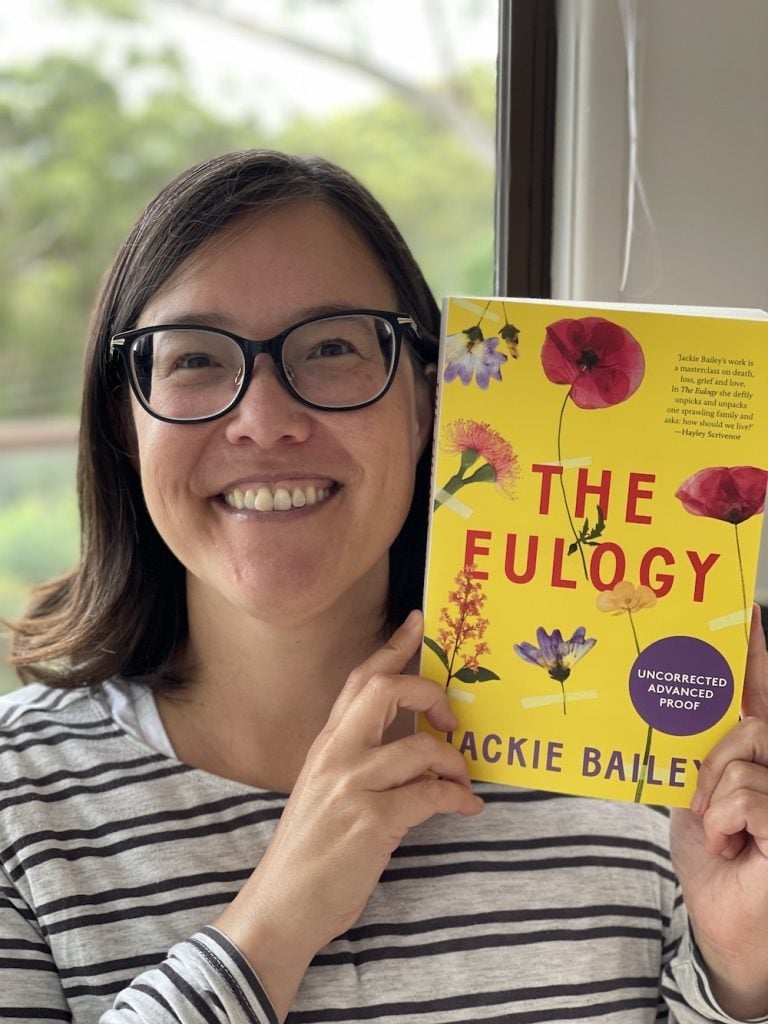
"The empty middle."
That's how Holly Wainright, the host of the Mamamia podcast MID, describes grief in a recent episode — and damn, if that doesn't perfectly sum up the ache of major loss.
Grief is a reality of life. At some point or another, we're all going to experience the pain of losing a loved one or missing out on something we deeply yearned for — and it's something many of us prefer to avoid thinking about before the time comes. It just... hurts too much.
As Holly says in the ep, "If it hasn't already visited, grief is looming... We hope we can keep it at bay if we just don't mention it."
Her guest, Dr Jackie Bailey, however, has a different take.
Listen to the full episode of MID here. Post continues below.
An interfaith minister, funeral celebrant, author of The Eulogy, and 'death walker' (someone accompanies a dying person and the bereaved on their journey), Jackie wants us to confront loss — and more specifically, mortality — head-on. This, she says, has the potential to help us all live a better life with the time we do have left.
 Dr. Jackie Bailey. Image: Jackie's Funerals.
Dr. Jackie Bailey. Image: Jackie's Funerals.